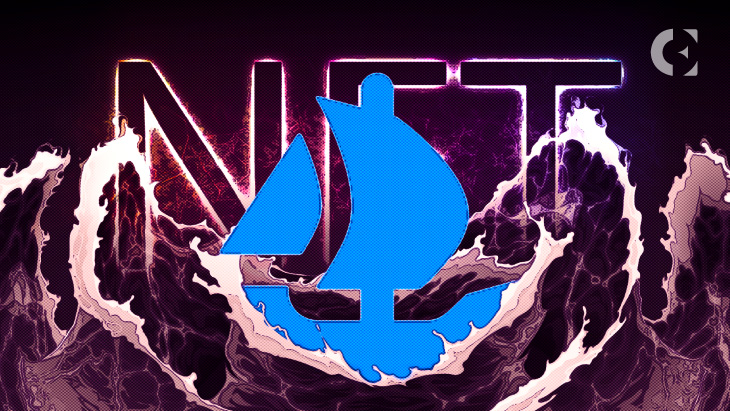- Fake NFTs are seemingly increasing in the OpenSea NFT marketplace.
- Users claimed that the OpenSea team should enhance their policy to avoid scams.
- Earlier this year, about 80% of fake NFTs were reportedly active on the platform.
In a shocking development, the billion-dollar-valued NFT marketplace OpenSea is reportedly showcasing several fake NFTs—again. Several NFT holders and owners have claimed that OpenSea is not protecting the original collections of artists and not implementing a stringent internal policy to protect users.
A large number of users are falling prey to these fakes and are being fooled by duplicate NFT collections. Unfortunately, many of these users also spend money on buying fake art tokens. However, these users can’t be blamed because when they search for their specific NFTs on OpenSea, the search results show fake collections, which are exact copies of the real digital collectibles.
Unsurprisingly, users are not happy with the state of procedures at OpenSea. Regarding the issue, the crypto community expressly stated that the OpenSea team could check if an NFT was fake or real by checking the minting date. And this is where the OpenSea team has failed to oblige.
Moreover, the NFT creators and holders remarked that OpenSea should protect and enhance their collections by implementing a stringent internal policy. In an interview with Coin Edition, an NFT user conveyed their disappointment with OpenSea, saying:
If OpenSea does not look up to ensure a strict policy, the platform will not be able to survive against the new NFT platforms that have recently launched.
Earlier this year, a similar situation occurred on the OpenSea platform. The NFT marketplace self-reported that over 80% of freely minted NFTs on the platform were fake and spam.
Additionally, in August, cybersecurity analyst Serpent, reported that there were many NFT and cryptocurrency scams running on Twitter. The analyst stated that scammers use copycat websites, accounts, URLs, hacked verified accounts, fake airdrops, and fake projects to hook inexperienced NFT holders.
Furthermore, he pointed out the “Fake Revoke.Cash Scam,” which tricks users by asking them to enter a phishing website that even gives a warning of risk factors. By clicking on further links, users usually fall right into the hacker’s devious trap.
Besides these, scammers also infiltrate and exploit members of Discord. In these discords, illicit actors impersonate official creators of NFTs and trick their members. Recently, hackers infiltrated the Moneky Kingdom NFT server and fled with $1.3 million worth of Solana.
Shedding more light on NFT scams, blockchain analytics firm Chainalysis reported that there are two popular NFT-related crimes: wash trading and money laundering. Through these crimes, scammers have accumulated illicit gains of $10 million worth of NFTs in 2021 alone.
Importantly, blockchain experts say that the NFT realm is developing with innumerable unique NFT collections in the web3 space. But, along with the surge, the number of scams and other illicit activities is also on the rise.
Also, experts say that more plagiarized and duplicated works are appearing on NFT marketplaces, which may continue in the future. Therefore, apart from the marketplace owners, the buyers should also check different sources to confirm the origin of the NFTs.
Launched in 2017, OpenSea is the first and one of the largest web3 NFT marketplaces in the world. It is an American online NFT marketplace founded by Devin Finzer and Alex Atallah. The platform hosts popular NFT collections such as Moonbirds, Bored Ape Yacht Club, Mutant Ape Yacht Club, CLONE X, The Phoenixes by Habit Nest, etc.
Disclaimer: The information presented in this article is for informational and educational purposes only. The article does not constitute financial advice or advice of any kind. Coin Edition is not responsible for any losses incurred as a result of the utilization of content, products, or services mentioned. Readers are advised to exercise caution before taking any action related to the company.







